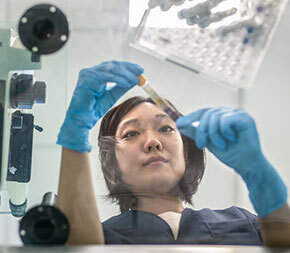
Medical Lab Technician At a Glance
Job Environment
Medical technologists act as supervisors for medical technicians, who perform many of the same duties in a physician’s office or lab. On the job, you’ll collect and analyze body fluids, tissue and other substances to determine normal or abnormal findings. You’ll operate sophisticated equipment and instruments to identify the results.
Both technicians and technologists perform tests and procedures that physicians or other healthcare personnel order. However, technologists perform more complex tests and laboratory procedures than technicians do. In these roles, you’ll work side by side in doctor’s offices, clinics, diagnostic labs and research environments.
Medical laboratory technicians often wear eye shields, gloves and other gear to prevent the spread of infection and to protect themselves from solutions and reagents used in testing.
Median Annual Salary
The U.S. Bureau of Labor Statistics says the median annual salary for lab technicians is $60,780.
They also cite medical and clinical laboratory technician median annual salaries by state. See what you could earn where you choose to work.
Career Advancement
If you’d like to advance and gain more responsibility and autonomy in the field, you can move into a medical technologist position. There, you can specialize in a variety of areas such as:
Certification of medical laboratory technologists and technicians is required for licensure in some states and by some individual employers. Although certification isn’t required to enter the occupation in all cases, earning it indicates your dedication to employers, and your commitment to high standards and continued improvement.
Credentialing Agencies Include:
The American Society for Clinical Pathology (ASCP) and American Medical Technologists offer national testing for the title of Certified Medical Laboratory Technician (MLT)